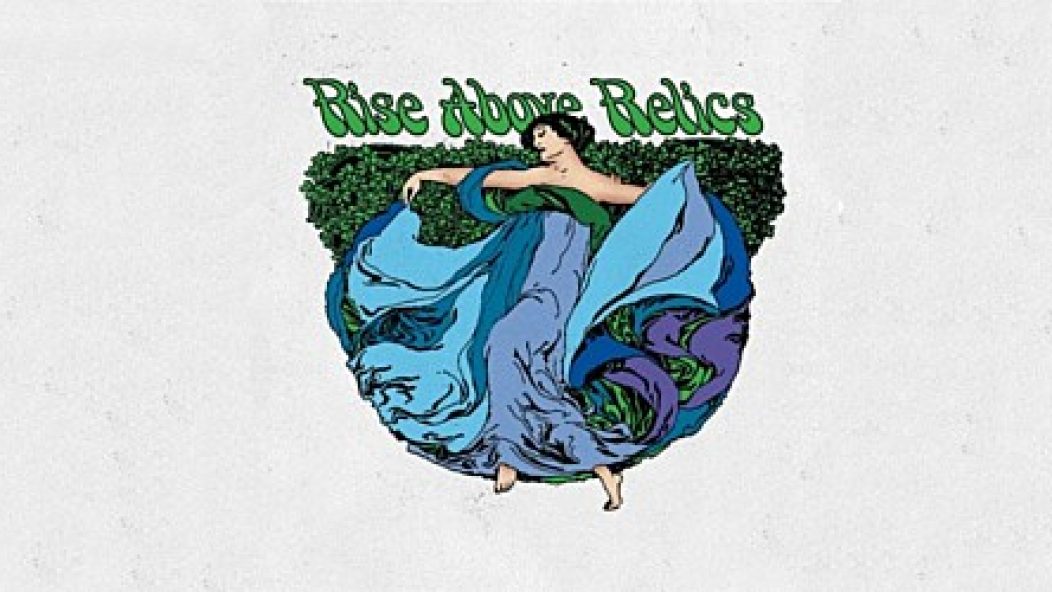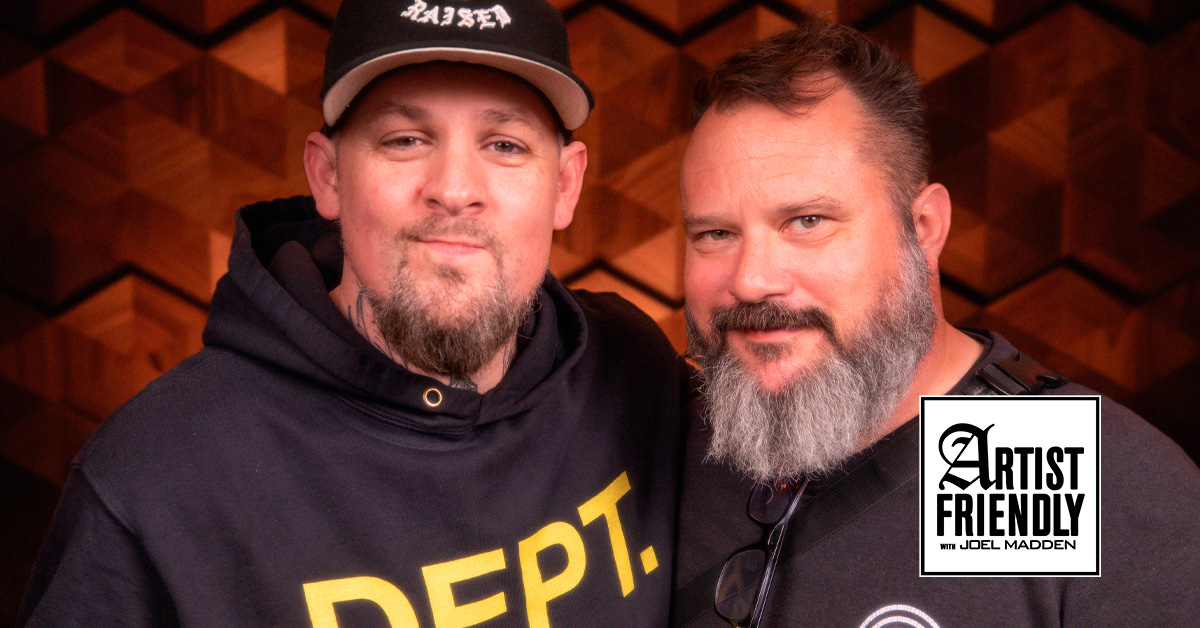
Interview: Lee Dorrian - Part 2

…
In part one of our interview with Lee Dorrian, we focused on Rise Above Records, his outlet for new music (albeit new music with a tried and true traditionalist approach). For part two, we delve into Rise Above Relics, Dorrian’s home for the albums of his youth and other overlooked gems that needed to be saved from obscurity. Here he lays out the complete reissue process and the qualities separating the Relics from the music of today.
…
So I wanted to get into the Relics portion of the label, because the reissue process is something that fascinates me. I want to get a feel for what fully goes into it. I think a lot of people have a really superficial understanding of what a reissue is, like you just find music and then put it back out. But I think it’s a lot more complicated than that.
Oh man. Each release on Relics has taken probably two or three years to get together. By the time it’s ready to go to print, I feel like a massive weight has come off my shoulders. Because the amount of time and effort that you put into doing these reissues. . .
You have to track down the original members. You have to source the copyright of the recordings. Then you have to try and get together the best possible audio sources you can find, whether they’re tape or mint vinyl or acetates. You have to get everything mastered and cleaned up; I mean that’s nothing, that’s the easy stuff. Getting together the sleeve notes and the booklet and trying to scrape together as much memorabilia as you can. Trying to get any clippings, any photographs, everything that you can possibly find that exists. It takes forever. And I always do the layout myself. If you’re doing a 40-page booklet in a CD, the layout takes me forever.
A lot goes into it, and it’s why we don’t do too many. If I had more time on my hands we’d be doing a hell of a lot more than we do. But we want them to be special. I always want them to be the definitive versions, and I want the band to have as much involvement in the way they’re presented as possible. I want the band to be able to tell their own story.
It’s a labor of love more that it’s a money-making thing, it’s totally all about dedication. Things like the Mellow Candle vinyl reissue we did, that’s one of my favorite albums of all time, and to end up being friends with Alison, and then having correspondence with Clodagh, the other singer, and seeing photos that have never been published before. Just getting the full insight into the whole story behind the band, and getting to hear the original master tapes and things like that. To me, that’s a major buzz, you know? It draws me closer to the time when those bands were around. I love that period, from the late ’60s to early ’70s, especially the UK scene. That’s my favorite period of music. So talking to these people and becoming their friends helps me have a better understanding of that time that I really love. So as much as anything, doing these reissues is as much a hobby as it is a business venture.
It’s a passion project.
It is. If you think about it, it’s like if you collect records; the amount of time and effort you put in. I mean people just think you’re going to buy a record or spend a stupid amount of money on eBay or something like that. But it’s an absolute lifestyle. Every time you go to a foreign country the first thing on your mind is what are you going to find and where. Where’s the flea market? We’ll do the record shops first but what’s happening on Sunday? Where’s the secondhand book shops that might have a box of records in them? You’re going to all these different parts of town in a country you haven’t been to before and you experience all these different things just because you’re on a hunt to find something, some treasure that you’ve been after for years. And in the same way, doing these Relics reissues, the treasure is finding out the story about what actually happened to the band and why they split up and how come their record is so revered these days and such a sought-after collectors item. It’s all part of the same lifestyle. I mean outside of running the label, that’s how I live my life anyway. I’m fascinated by all these things. I’m just fortunate to be in a position to actually turn that into something you could call a career.
…
…
So what would be your first step in the reissue process? You hear something, it clicks; where would you go first? Would you talk to the band or would you talk to legal to understand who has the copyright?
You think, Well which records in my collection would I like to see being reissued and done in a way that’s never been done before? So you just start searching. You start searching out the copyright holders and then you just look at the band names on the record sleeve. Nowadays, I suppose it’s much easier than it used to be, with Google and stuff, but in the old days you’d have to contact the musicians’ union and try and get a list of names and telephone numbers, things like that. But these days, hopefully you can find someone who had some involvement with the band, whether it’s an old manager who has left a post on a forum or something. Or whether it’s an old tour manager, a roadie, or maybe the drummer’s made a comment on a blog. You have to kind of scour and scour and scour the internet to try and get any leads.
The Steel Mill reissue we did literally took me five years to track down one of the original members of the band, David Morris, and it was really like a fluke coincidence. Every couple of months I’d search the internet to just see if anything new had come up about the band. And he’d posted a comment about a radio show that was very popular, Radio Luxembourg. He had posted because a Steel Mill song, “Green Eyed God,” was played on there quite often. And I was like, Oh Christ, that’s David Morris from the band. Fortunately, he posted and left his email address on there and I managed to get in touch with him. I sent him an email but he didn’t actually respond to me for about two years. In the meantime, I managed to track down the owner of the original label that it came out on, Larry Page. Larry Page is a music producer, an ex-pop star from the early ’60s, late ’50s, and he became the manager for the Troggs and various other bands. He had a label called Page 1, which turned into Penny Farthing which released the Steel Mill LP. And I managed to track him down. He’s living in Australia and I became quite friendly with him. And he said, “Yeah, by all means release the Steel Mill album.” Then the singer got in contact with me, told me he had like seven or eight acetates of unreleased recordings that they had recorded before the album. Things like that, you’re just putting pieces of the jigsaw together. And then he said he had a bunch of photos from Reading Festival but he couldn’t find them because they were lost in his attic, so you have this anxiety of knowing that things exist and you can’t find them.
We spent like a year waiting for him to find these photographs. We put the album out and then about three months later, his son finds them and the next day he was here. (Laughs) So I think they just put them on their website. Things like that can become quite distressing, because it becomes an absolute mission to make sure that you’ve got everything you can possibly get to put into the release that’s relevant, and if you feel like something’s there and it’s missing, it’s very tortuous.
Has there been anyone you’ve encountered regarding a reissue who takes some extra convincing?
Roger Lomas, from the Rog and Pip reissue we just did, he was like, “No no no, what are you interested in this for?” I don’t know if people had approached him before, but he didn’t think I was taking it seriously. Of course I had to mention, “Well, we’ll give you an advance. . . ” And then he got more interested (laughs). But it did take a lot of persuading, yeah.
I mean that’s an amazing find to get all that stuff on the Rog and Pip album, because he’s got all this stuff just sitting in a box, all these unreleased recordings, from the top studios in London. That was of particular interest to me because they’re from Coventry, and they’re related to another band from Coventry that my parents used to go and see on a weekly basis. And I remember them talking to me about the Sorrows because they used to go see them every Sunday in town. And then I became really interested in that band, and I started listening to their records like 20-odd years ago.
So time went on and I found out the Sorrows had moved on to do these other projects together. First thing I heard was that 7” From A Window/Warlord, and I thought, Fuck this is so awesome, it’s this band from Coventry playing this real heavy Sabbath/Zeppelin type material. And I thought they must have recorded more than just this one single. So I just made a few inquiries, and of course being from Coventry myself, it wasn’t too hard to track Roger Lomas down. Wasn’t hard to track him, it was just hard to crack him (laughs). And then once he had the confidence in me, I went to the house and listened to all his tapes and it just blew my fucking mind. And then we became really friendly and they let me borrow all their photograph albums and stuff.
They had a real good story and we managed to put it all together and it’s one that I’m really proud of. And you know, these things are for people into specialist types of music, they’re not going to sell millions of copies or anything. But I think it’s important for them to be out there and for people to know that these are things that were recorded. I suppose it’s like an archivist, historian way of looking at things, but I really do think they should be out there. Otherwise I wouldn’t do it.
…
…
There’s just something so tragic about music potentially being lost.
Yeah, the reason I’d only go back that far is because it’s in my lifetime still, it’s not too far in the past. But I think in 20 years time, it’s going to be a lot harder to write about this. I don’t like to say things like the people from these bands are still alive, because they are still alive, but in 20 or 30 years time there’s going to be fewer of these people around, and the chances are their story is not going to be accurate. I want them to make sure their story is accurate.
So yeah I don’t want this music to be lost, I want it to be recognized. To me, like I say, most of the records that we put out on Relics are very important to me because they’re some of my favorite records. To get to know these people and see generally how humble they are, and they have a lot of heartache about those days because they felt like they put so much into it and never got listened to. . . and they’ve spent all these years in the meantime just kind of, I guess thinking about, Oh, remember that band we used to be in? Well nothing really happened. So to come full-circle and then be recognized I think is a great thing. Even if it’s not setting the world on fire, at least it’s acknowledged by people who give a shit, you know?
That’s the most important thing in the end. The right people are going to be into it.
Well and then it’s there for the long-term. Once it’s out you say it’s going to be there forever, as opposed to sitting in someone’s attic and gathering dust.
By doing this have you ever thought about how random ‘making it’ is? A lot of these bands had the chops to break big, but they didn’t for some reason.
Well it’s almost the opposite of what it is now, isn’t it? Back then was swamped with so many fucking amazing bands, and now it’s swamped with so many crap bands. And it’s only now that these bands that were ignored have a chance to filter through because people are tired with the over-saturated environment we live in now. Bands want to play music just to be popular these days. I’m not talking about every band, I’m generalizing. Back then there was an element of that, but I think they were so much more into the music. They had grown up in the ’60s, there wasn’t the internet, there wasn’t all these crap things we have now, there just was their music and that was their passion. They put their whole life into that, and then a lot of people just became so disillusioned that they just went to the factories and hung up their guitar and never played again.
The trials and tribulations back then weeded out the people who wouldn’t be passionate about music. Like you had to go meet some guy to figure out how to play a D minor chord. Go talk to Russ down the street. You couldn’t log onto Google.
And of course all the inspirations you had, they came organically. You actually felt them. It’s not like you became an expert on jazz because you had Google to tell you the Top 10 Jazz LPs of all time, you had to fucking figure out which ones were the best ones. You just had to work it out yourself. And therefore the hunger and the intensity to actually play the music was a lot more alive, as opposed to, I don’t know, just the digital world. . . Like you were saying, you can just open a a program — plug in and play the whole Metallica album just by touching these notes on the on the strings. And it’s just like, what the fuck is that? You know what I mean? Even in relative times, Metallica never had that luxury. They listened to the New Wave of British Heavy Metal catalogue inside-out, so they had every bloody note on every 45, and probably every credit on the back of the sleeve, that’s how passionate they were about it. But now you’ve got bands that just want to sound like them, as opposed to bands with that same hunger trying to find out everything for themselves. I don’t know, I am being a bit negative about the current music scene, maybe more so the metal scene, but it’s just kind of how I feel. I sometimes feel like I sound like an old man, and I just look back as opposed to forwards. But I don’t think that’s how I really am, I just like what I feel, and if I feel something that strikes a nerve with me then I go with it, you know?
Yeah.
And I generally don’t feel modern music, modern production and things. . . I mean you could say I’ve got a retro outlook but I don’t, you know? If I don’t like modern production values it’s because they don’t sound like real people playing on the record. Why should I pretend that I do like it? I just don’t have that inside me. I have to be honest with myself, and like what I like.
…
…
I’m pretty jaded. The thing that bugs me about modern production is that. . . I understand that overall it’s a boon to humanity in that it saves time, I understand that. Life is fleeting. Okay. It takes a lot shorter to make a record. But you lose a lot of the creativity in the process.
Indeed.
The things that stick are the mistakes that you make and the ways you find to work around them. And if you don’t make mistakes anymore, you’re losing all this ingenuity.
Well yeah, look at like a record like, off the top of my head, like Love Bites by the Buzzcocks, a punk LP. Now if that was recorded now in Pro Tools, it’d be like, I can’t hear any mistakes. It doesn’t sound raw, it sounds like fucking every other record that comes out at the moment where everything is pushed to the max, there are no kind of dynamics, the drums are completely triggered, it doesn’t sound like a drummer playing, everything is in tune. . . It sounds fake.
I like to hear the human side of a recording, whether there are mistakes in there or someone is out of tune for a moment or whatever. To me that’s life, that captures true feeling, and to have everything sanitized. . . I mean, you’ve got bands playing so-called grindcore at 1000 miles an hour, but with triggers and Pro Tools. . . what the fuck is that? Playing grindcore music to me is about pure aggression, and you can’t have pure aggression when everything is monitored and straightened out in some kind of software. To me it’s just completely lame, it’s the opposite of aggressive, it’s just like cheap imitation of a spirit. (Laughs) I think you know what I’m saying anyway.
It just sucks that important part out of the creative process. It’s so important to sit there and say, “Holy shit, how do I do this?” If no one is saying that then nothing new happens.
Well, you don’t put it all down to just tape, you know what I mean. I understand tape, from an engineer’s perspective, is a complete nightmare. Why should he spend hours on getting one guitar solo, and like editing tracks with a razor and whatever else you have to do when you could just do that in a couple of minutes? You could have a band with like three verses, three choruses, and a mid-section. You only need to record the verse once, the chorus once, and the mid-section once and then you just tag the front one on the back end so every verse and every chorus sound exactly the same. I mean what the fuck is that? Bands used to play every song live, surely that’s what you want to do when you go on tour and play the songs in front of people, you want to play the songs live as you would in the studio. And the torturous aspect of it, yeah. I mean writing and recording will take a lot longer if you do it in a more traditional way. But I imagine — well I know — that the end result is a lot more rewarding.
Just to listen back and be like, I did that. It wasn’t a computer doing it for me. I did that.
(Laughs) Give yourself a pat on the back.
…











